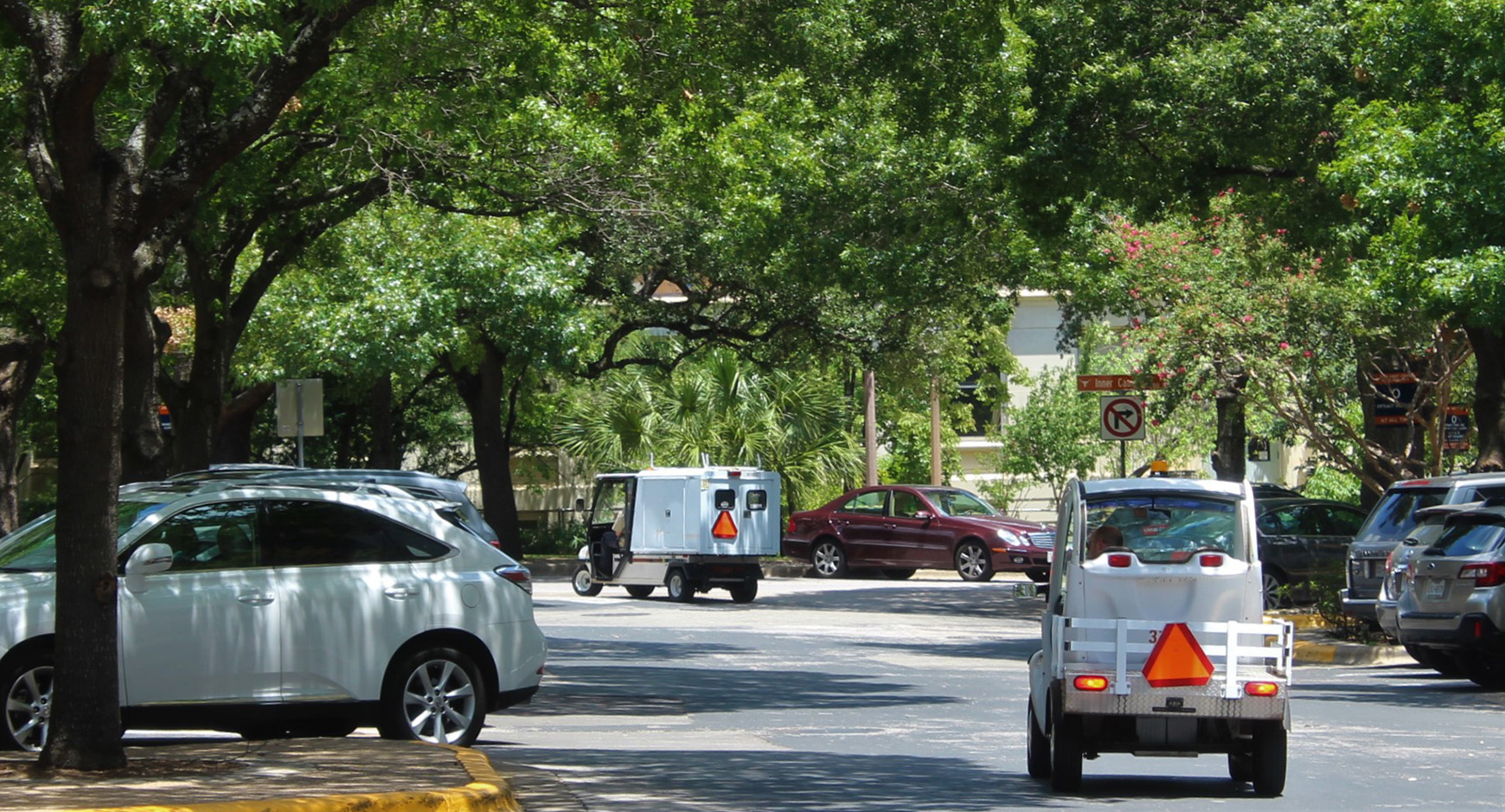In the last decade, the number of electric carts on campus has increased by almost 300%, shifting the UT fleet away from reliance on large gas-powered trucks to more nimble vehicles that haul everything from people to ladders and plants. This change—combined with other infrastructure improvements to campus—is both reducing UT Austin’s carbon emissions and saving money because of lower maintenance and operating costs.
“Electric vehicles have a lower cost of ownership,” says Mark Kaligian, Assistant Director & Fleet Manager. “We estimate that operating costs for our electric carts equals about 20 cents a mile while regular trucks and cars take about 43 cents to cover the same distance.”
Approximately 590 vehicles, 211 trailers, 457 carts, and other means of transport make up the UT Fleet. This fleet is maintained, monitored, and fueled by a team of a dozen University Fleet Operations (UFO) employees, and their efforts are garnering attention among the 38,000 national fleets. For the last three years, the team has received to two national awards: UT was the only university recognized with a Leading Fleets award by Government Fleet magazine (2017, 2018, 2019), and UT is the highest-ranked university among the four that are included in the 100 Best Fleets (2017, 2018, 2019).
While the reasons for receiving awards are complex and include partnerships with research units on campus, sustainability does play a role in keeping the UT Fleet competitive. Over the last decade, UT has removed an estimated 100 regular trucks or cars from the fleet by increasing the number of electric carts to 254 and the number of hybrid or electric cars to 19. These numbers are up from 93 and two, respectively.
In addition to the lower cost of operation, electric vehicles provide additional benefits. The fiberglass body of carts can “look new” for decades, an overnight charge to a battery easily covers the distance driven on average, and new cart technology is expanding the possibilities for drivers on campus, especially with the “street legal” carts that reach higher speeds and have safety features like seat belts, lights, horn, etc.
But not all vehicles in the UT Fleet can switch to electric carts, especially since full-sized vehicles are required to either travel on highways or transport heavy loads of people or equipment. UFO has expanded the sustainable options for these vehicles by improving campus fueling infrastructure. In 2011, Kaligian applied for and received a $250,000 grant to convert one of the campus fuel tanks to ethanol (E85) for flex fuel vehicles. Because of this, UT was one of the first places in Austin where E85 could be pumped into trucks and cars.
UFO also provides in-house servicing of vehicles. Regular maintenance and tracking of vehicle performance improves gas mileage and reduces pollutants. Even more importantly, the team also services and fuels several hundred additional state-owned vehicles, thereby potentially reducing carbon emissions beyond the Forty Acres.
Despite the recognition and sustainable changes to the UT Fleet, Kaligian believes that there is an opportunity to continue to improve the UT Fleet.
“I think that probably 25% of the large vehicles could be swapped for electric. Moving to an increased number of electric vehicles would be great for the university and remove hundreds of thousands of metric tons of carbon out of the atmosphere. Our industry is going electric; the question is how fast we can get on board with it.”
Written by Kristin Phillips, Communications Coordinator in the Office of Sustainability

